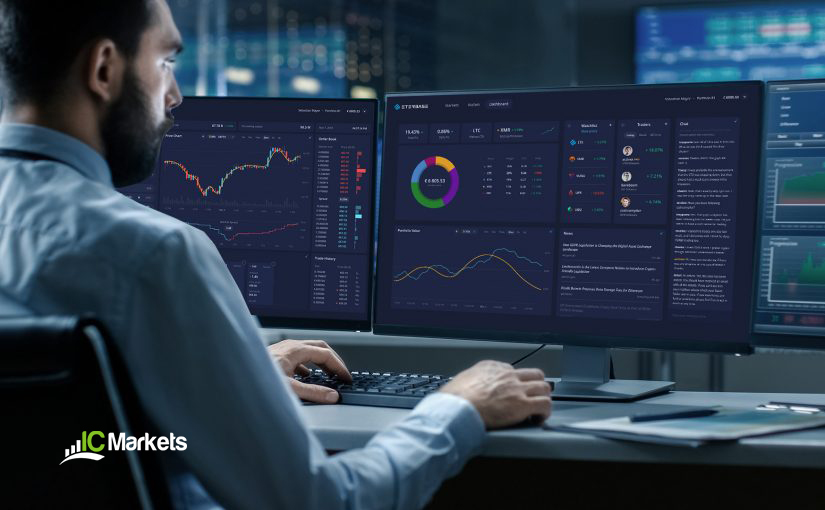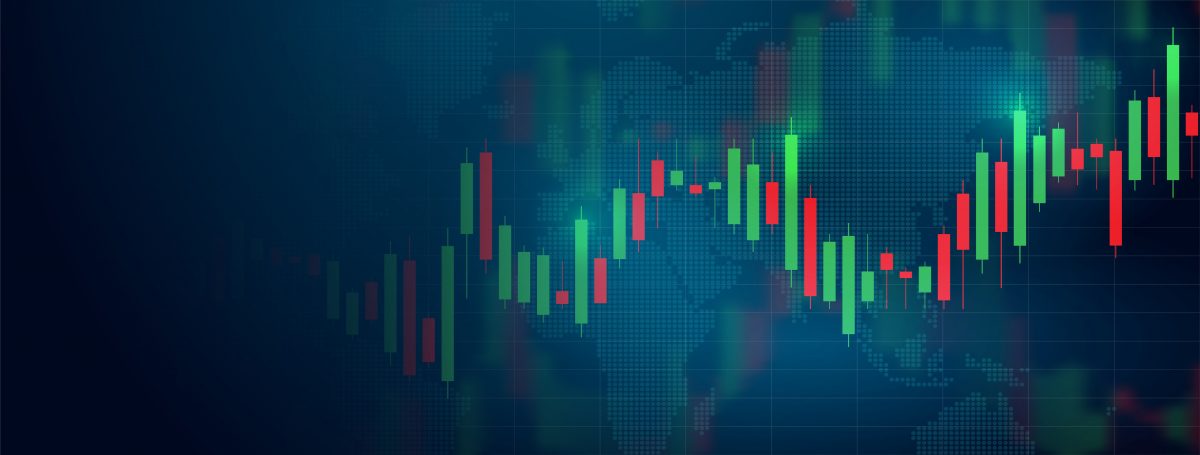Over the years technology has revolutionised our world, producing invaluable tools and putting useful information at our fingertips. Thanks to these technological advances, becoming a professional retail trader is a possibility for all.
Becoming a consistently professional retail trader, however, is another thing entirely.
Trading is a demanding career choice and requires a specific skillset, as well as the facility to adapt to changing market conditions. If this is a challenge that appeals, pour yourself a coffee and read on.
First steps
Before anything else, ask yourself why you want to become a trader.
The answer to this question will determine if trading is for you.
Financial freedom:
Financial freedom means different things to different people. Nevertheless, at its core, it is the ability to make choices you otherwise would be unable to make.
It’s important you’re clear about what you want. Is it the freedom to purchase that high-end car you’ve always wanted, take the family on a dream vacation, or simply live more comfortably and add a few more coins to the retirement fund?
An adrenaline rush:
This is akin to gambling in a casino. Unfortunately, some individuals enter the industry for a daily fix of adrenaline. And just like most gamblers, this will only end one way: an empty account.
A trading career is not determined by a single trade.
Prestige:
If you’re trading to impress, greed will eventually take over. The ability to control emotions is a huge part of trading.
Successful traders have a clear purpose: to make money. They’re not trading to feed their egos, impress friends or to get a daily boost of adrenaline. It comes down to making money year in year out.
The learning phase
Malcolm Gladwell gave us the 10,000-hour rule, stating anyone can master a skill with 10,000 hours of practice.
While this figure may seem excessive to some, a number of interviews with successful traders showed 10,000 hours of study to be true, at least for the majority.
As such, enrolling on a weekend course will not, despite what your favourite guru claims, transform you into a consistently profitable trader. Proficiency in this profession takes time, discipline, hard work and commitment.
So with the above in mind, can anyone be a trader and reach a level that allows profits? Arguably, this ultimately depends on the individual’s will power and determination. Others have achieved this goal so anything is possible.
What type of trader are you?
Although each trading style differs on holding periods and frequency, the four most common types of traders operating in the market are: the scalper, day trader, swing trader and position trader.
Becoming a day trader seems the more appealing route these days.
Many believe day trading and scalping are similar trading styles. While both take place within one trading day, day traders open one, maybe two, setups a day using timeframes ranging from the H1 to the M5 timeframes. Scalpers, on the other hand, aim to achieve profits from relatively small price changes. Scalpers often open and close larger numbers of trades using the M1, M3 and M5 timeframes, with the goal of catching multiple small wins.
Swing trading is, as its name implies, a medium-term trading style designed to hook market swings varying from a couple of days to a few weeks. Traders in this class generate the majority of their trading signals via technical analysis, though fundamental analysis can also help form ideas as well. Popular timeframes within this field are the H4 and daily charts.
Position trading involves holding trades long term, ranging from weeks, months and even years for some. Traders in this category tend to glean information from both fundamental and technical analysis, and typically focus energy on slower timeframes: monthly and weekly scales.
Psychology
Learning how to regulate psychological conflicts is as important as developing a well-defined money/risk-management strategy and trading methodology. Having all components function side by side is paramount to successfully trade.
Unfortunately, trading psychology is often overlooked. Many traders mistakenly believe developing solid trading methodologies is all that’s required to profit.
If you’re incapable of regulating your mind while operating in the market, regardless of the trading methodology’s success rate, the odds of becoming profitable is exceedingly low.
Although a plethora of trading books are written on the subject, here are a few points to think about:
- The ability to follow your trading method flawlessly is a key aspect to successful trading.
- Thinking in probabilities is a crucial element. Learning to think in probabilities is a somewhat tricky phenomenon to master, though a vital division to thinking like a professional trader.
- Learning to accept losses and not let it affect the next trading decision is a critical skill.
- A patient trader is a wise trader. Patience is also one of the most overlooked attributes of a professional trader. Patience is not about doing nothing; it’s about doing the right thing at the right time.
Working on yourself (your mindset), as well as the trading method, is just as important. Make sure to research this subject as it can make or break you as a trader.
Common mistakes traders make
- Not having a defined trading plan with a clear set of rules. Without this, you’re little more than a gambler. A plan, at the very least, should detail risk, system rules and maximum permissible drawdown. Nearly every mistake traders make is down to either not having a plan or not following it.
- New traders commonly misuse margin (over leveraging). Trading this way tends to end one way, and it’s rarely favourable. If used correctly, leverage is an invaluable weapon.
- Taking advice/education from so-called gurus. This is not to say all who educate are uninformed. There are traders who openly prove they know what they’re doing.
- Refusing to take a loss. Taking losses is a part of trading. Think of it as a business expense. Not accepting a loss is a good way to lose your account. The protective stop-loss order is there to protect you and tell you when you are wrong. Use it.
- Emotional trading. Unless you’re a robot, eliminating emotions is impossible. If you’re incapable of regulating your mind while operating in the market, regardless of the trading methodology’s success rate, the odds of becoming profitable is low.
- Impractical expectations. Expecting to become a millionaire within a year with a $1,000 account is not a reasonable expectation. Thinking this way causes unnecessary pressure. Trading is not a get-rich-quick-scheme.
Where do I begin?
- Start by sifting through our educational department: https://www.icmarkets.com/education/. Spend time learning the basics.
- Sign up to an unlimited demo account (paper trading): https://www.icmarkets.com/open-new-demo-account/. This allows you to trade live markets using simulated funds. Here you can also test strategies and familiarise yourself with the trading platform and terminal’s functions.
- Begin formulating a trading strategy. Consider researching price action. Our daily market commentary covers this in depth using a multi-timeframe approach over a number of financial instruments: https://www.icmarkets.com/blog/.
- Research trading psychology, alongside step 3.
- Practice, practice and practice.
- Once you’ve tested your chosen method and are satisfied with the results, you may consider opening a live trading account using real money. With IC markets, you can open an account with as little as $200 (https://www.icmarkets.com/forex-trading/open-a-live-account/). That way, making your very first trade need not break the bank should you make a mistake.
It’s important you’re realistic about professional trading, as there’s no perfect methodology that produces winning results all of the time – losses will occur. Nevertheless, if you learn to differentiate accurate information from that which is misleading, you can spend time focusing on material that’ll make you a more efficient trader in the future.




